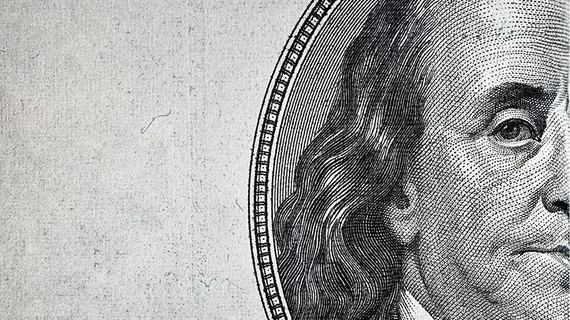RadNet bracing for $11M drop in 2021 revenue following Medicare reimbursement update
Imaging giant RadNet Inc. expects its revenues to decline by about $11 million in 2021 due to recently proposed federal reimbursement changes.
Leaders with the Los Angeles-based radiology provider specifically pointed to the Centers for Medicare and Medicaid Services’ plan to boost payment for evaluation and management services by $5 billion. Radiologists and other specialists do no typically use such codes and, in a budget-neutral world, the boost would mean billions in reduced payment to the field in the coming years.
RadNet said Monday that it’s already eyeing ways to counter the multimillion-dollar hit to its bottom line ahead of the change taking effect next year.
“While we are not pleased with this outcome, we have plans in place to more than fully mitigate this potential cut,” Mark Stolper, executive vice president and chief financial officer, said during a Monday call with investors.
RadNet said it calculated the figure by using CPT codes in the recently released new physician fee schedule, and predicting its revenues based on expected 2021 procedural volumes. Another recent analysis commissioned by the American College of Radiology found the imaging industry stands to lose about $10 billion over the next decade. ACR said last week that it’s “extremely disappointed” with the finalized proposal.
Stolper said the firm will counter this hit to its revenue by cutting expenses in four areas. Those include permanently reducing staff in regional operations along with corporate-support functions, dropping future travel and other employee reimbursement, consolidating certain sites and modalities, and increasing 2021 rates charged to private payers.
RadNet had already started to take some of these actions this year to help address precipitous declines in patient visits. The company reported a roughly $98.5 million (or 34%) drop in revenue for the second quarter of 2020 compared to the same period in 2019. And earnings before interest, taxes, depreciation and amortization plummeted $20.5 million (or 47.6%) during the second quarter amid a widespread slowdown in imaging.
Overall volume sagged by 43.7% year-over-year for RadNet, with MRI (down 39.7%), CT (31.6%) and PET/CT (17.6%) taking the biggest hits.
Stolper remains hopeful that intense lobbying efforts—from both the ACR and the Association for Quality Imaging—will convince the feds to reconsider the payment policy change. The proposed rates are still subject to comment, with the final rule to be released around November.
“In light of the impact of COVID-19 on all physicians, radiologists included, we remain hopeful that CMS may decide not to move forward with the budget-neutrality requirement,” Stolper told investors.
Despite the second-quarter declines officials are seeing signs of recovery in the specialty. RadNet reported that procedural volumes returned to about 90% of pre-COVID levels, and as such, the firm reopened 77 of the 102 centers it closed temporarily during the pandemic.
RadNet bills itself as the “leading” provider of freestanding, fixed-site diagnostic imaging services in the U.S., operating 332 outpatient imaging centers across the country and employing roughly 8,600 team members. You can read more about its second quarter earnings here.

